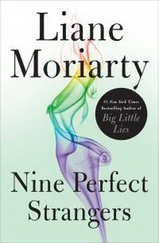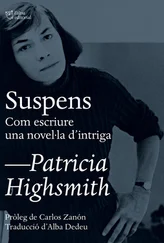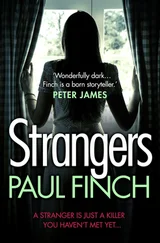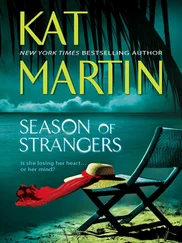Guy stayed until Tuesday morning when there was no letter from Bruno either, and then went in to Manhattan. Work had piled up. A thousand things nettled him. The contract with the Shaw Realty Company for the new office building still had not been settled. He felt his life disorganized, without direction, more chaotic than when he had heard of Miriam’s murder. There was no letter from Bruno that week except one that awaited him, that had arrived Monday. It was a short note saying thank God his mother was better today and he could leave the house. His mother had been dangerously ill for three weeks with pneumonia, he said, and he had stayed with her.
Thursday evening when Guy got back from a meeting of an architectural club, his landlady Mrs. McCausland said he had had three calls. The telephone rang as they stood in the hall. It was Bruno, sullen and drunk. He asked if Guy was ready to talk sense.
“I didn’t think so,” Bruno said. “I’ve written Anne.” And he hung up.
Guy went upstairs and took a drink himself. He didn’t believe Bruno had written or intended to write. He tried for an hour to read, called Anne to ask how she was, then restlessly went out and found a late movie.
On Saturday afternoon, he was supposed to meet Anne in Hempstead, Long Island, to see a dog show there. If Bruno had written the letter, Anne would have gotten it by Saturday morning, Guy thought. But obviously she hadn’t. He could tell from her wave to him from the car where she sat waiting for him. He asked her if she had enjoyed the party last night at Teddy’s. Her cousin Teddy had had a birthday.
“Wonderful party. Only no one wanted to go home. It got so late I stayed over. I haven’t even changed my clothes yet.” And she shot the car through the narrow gate and into the road.
Guy closed his teeth. The letter might be waiting for her at home then. All at once, he felt sure the letter would be waiting for her, and the impossibility of stopping it now made him weak and speechless.
He tried desperately to think of something to say as they walked along the rows of dogs.
“Have you heard anything from the Shaw people?” Anne asked him.
“No.” He stared at a nervous dachshund and tried to listen as Anne said something about a dachshund that someone in her family had.
She didn’t know yet, Guy thought, but if she didn’t know by today, it would be only a matter of time, a matter of a few days more, perhaps, until she did know. Know what, he kept asking himself, and going over the same answer, whether for reassurance or self-torture, he did not know: that on the train last summer he had met the man who murdered his wife, that he had consented to the murder of his wife. That was what Bruno would tell her, with certain details to make it convincing. And in a courtroom, for that matter, if Bruno distorted only slightly their conversation on the train, couldn’t it amount to an agreement between murderers? The hours in Bruno’s compartment, that tiny hell, came back suddenly very clearly. It was hatred that had inspired him to say as much as he had, the same petty hatred that had made him rage against Miriam in Chapultepec Park last June. Anne had been angry then, not so much at what he had said as at his hatred. Hatred, too, was a sin. Christ had preached against hatred as against adultery and murder. Hatred was the very seed of evil. In a Christian court of justice, wouldn’t he be at least partially guilty of Miriam’s death? Wouldn’t Anne say so?
“Anne,” he interrupted her. He had to prepare her, he thought. And he had to know. “If someone were to accuse me of having had a part in Miriam’s death, what would you—? Would you—?”
She stopped and looked at him. The whole world seemed to stop moving, and he and Anne stood at its still center.
“Had a part? What do you mean, Guy?”
Someone jostled him. They were in the middle of the walk. “Just that. Accused me, nothing more.”
She seemed to search for words.
“Just accused me,” Guy kept on. “I just want to know. Accused me for no reason. It wouldn’t matter, would it?” Would she still marry him, he wanted to ask, but it was such a pitiful, begging question, he could not ask it.
“Guy, why do you say that?”
“I just want to know, that’s all!”
She pressed him back so they would be out of the traffic of the path. “Guy, has someone accused you?”
“No!” he protested. He felt awkward and vexed. “But if someone did, if someone tried to make out a strong case against me—”
She looked at him with that flash of disappointment, of surprise and mistrust that he had seen before when he said or did something out of anger, or out of a resentment, that Anne did not approve, did not understand. “Do you expect someone to?” she asked.
“I just want to know!” He was in a hurry and it seemed so simple!
“At times like this,” she said quietly, “you make me feel we’re complete strangers.”
“I’m sorry,” he murmured. He felt she had cut an invisible bond between them.
“I don’t think you’re sorry, or you wouldn’t keep on doing this!” She looked straight at him, keeping her voice low though her eyes had filled with tears. “It’s like that day in Mexico when you indulged yourself in that tirade against Miriam. I don’t care—,1 don’t like it, I’m not that kind of person! You make me feel I don’t know you at all!”
Don’t love you, Guy thought. It seemed she gave him up then, ‘ gave up trying to know him or to love him. Desperate, slipping, Guy stood there unable to make a move or say a word.
“Yes, since you ask me,” Anne said, “I think it would make a difference if someone accused you. I’d want to ask why you expected it. Why do you?”
“I don’t!”
She turned away from him, walked to the blind end of the lane, and stood with her head bent.
Guy came after her. “Anne you do know me. You know me better than anyone in the world knows me. I don’t want any secrets from you. It came to my mind and I asked you!” He felt he made a confession, and with the relief that followed it, he felt suddenly sure—as sure as he had been before that Bruno had written the letter—that Bruno hadn’t and wouldn’t.
She brushed a tear from the corner of her eye quickly, indifferently. “Just one thing, Guy. Will you stop expecting the worst—about everything?”
“Yes,” he said. “God, yes.”
“Let’s go back to the car.”
He spent the day with Anne, and they had dinner that evening at her house. There was no letter from Bruno. Guy put the possibility from his mind, as if he had passed a crisis.
On Monday evening at about 8, Mrs. McCausland called him to the telephone. It was Anne.
“Darling—I guess I’m a little upset.”
“What’s the matter?” He knew what was the matter.
“I got a letter. In this morning’s mail. About what you were talking about Saturday.”
“What is it, Anne?”
“About Miriam—typewritten. And it’s not signed.”
“What does it say? Read it to me.”
Anne read shakily, but in her distinct speech, ‘“Dear Miss Faulkner, It may interest you to know that Guy Haines had more to do with his wife’s murder than the law thinks at present. But the truth will out. I think you should know in case you have any plans for marrying such a dual personality. Apart from that, this writer knows that Guy Haines will not remain a free man much longer.’ Signed, ‘A friend.’”
Guy closed his eyes. “God!”
“Guy, do you know who it could be?—Guy? Hello?”
“Yes,” he said.
“Who?”
He knew from her voice she was merely frightened, that she believed in him, was afraid only for him. “I don’t know, Anne.”
“Is that true, Guy?” she asked anxiously. “You should know. Something should be done.”
Читать дальше












